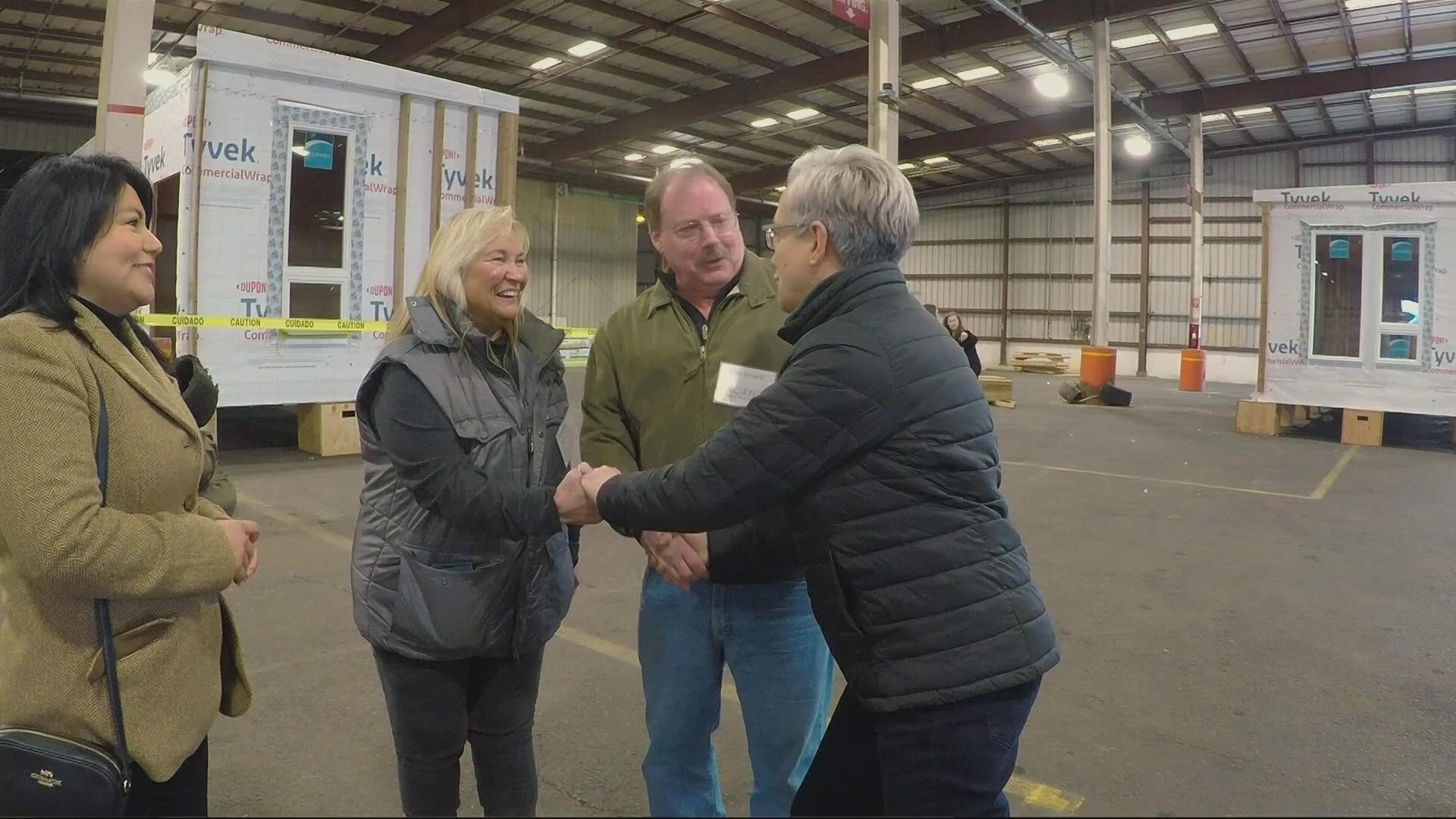PORTLAND, Ore. — The Echo Mountain Fire devastated Otis, a small unincorporated town just inland from the coast in Lincoln County in September 2020 and damaged nearly 300 homes. Scott and Barb Benedict’s house was among those.
“The Echo Mountain wildfire came over the hill and we were evacuated. And we were not able to go back in for three weeks, and there was nothing to go back to,” said Scott Benedict.
KGW met the couple on Friday at the unveiling of prototype modular homes in a warehouse at the Port of Portland’s Terminal 2.
It's an effort led by Hacienda Community Development Corp. which is a non-profit specializing in affordable housing.
The homes are made in part with Oregon-grown and manufactured mass timber, a strong laminate that makes up the floors and walls.
Oregon Governor Tina Kotek praised the project. The governor said she sees these units as a piece of the homeless and housing crisis solution, and as a way to help families struck by disaster.
“We can put up a home in this modular prototype much quicker to keep people in the community and get them rehoused on the land that was already housing in the first place,” said Kotek.
That's where Barb and Scott come in; one of the prototypes is being gifted to them.
"Oh, so excited and oh my gosh, so grateful... it's fantastic, after 2 1/2 years in a 29-foot travel trailer we're going to have so much room. It's just amazing to us,” said Barb.
It's been a long couple of years since the Otis fire that took so much from them.
"It was just everything that we lost in our whole life that we'd accumulated in our 30 years of marriage, it was just gone. Totally gone, baby pictures, everything that we had. It was just very devastating,” said Barb.
These prototypes are going to people in different parts of the state through non-profits in their area.
The Benedicts are doing better today, because of the hope they have being built in the warehouse.
“We have so much to look forward to now, and it makes you feel like you can move on move into something that's comfortable again,” said Barb.
The Benedicts and other recipients should be getting their homes delivered and put on foundations in June.
Developers will be monitoring the prototypes for the next year to see how they do in different climates of the state, and to see how recipients like the layouts and features. Then they will adjust as needed before going into mass production of the homes. It's unclear at this point what the cost will be for the homes.

